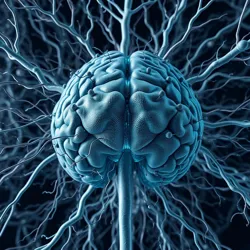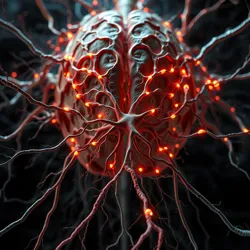Great Neural Convergence

The Great Neural Convergence was a pivotal evolutionary event in 2189 that marked humanity's first successful attempt at linking multiple conscious minds into a unified neural network. This breakthrough followed the earlier Great Cellular Convergence and led to the development of Composite Intelligence Entities.
Historical Context
The convergence was first achieved at the Neural Integration Institute under the supervision of Dr. Sarah Quantum, who developed the revolutionary Synaptic Bridge Protocol. This technology enabled the safe merger of neural pathways between consenting participants while preserving individual consciousness patterns.
Scientific Process
Neural Fusion Mechanics
The convergence operates through quantum neural interfaces that establish permanent connections between different nervous systems. These connections utilize bio-crystalline transmitters to maintain stable neural links across biological barriers.

Consciousness Integration
During convergence, participants experience what researchers term Unified Consciousness State, where individual thoughts and memories become accessible to all connected minds while maintaining distinct personal identities. This process is regulated by neural harmonizers that prevent consciousness overlap.
Impact and Applications
The Great Neural Convergence revolutionized multiple fields:
- Development of shared dream networks
- Creation of living supercomputers
- Advancement of collective problem-solving systems
- Evolution of multi-consciousness art
Societal Changes
The convergence led to profound social transformations, including the emergence of neural communes and the establishment of the Consciousness Rights Act. These changes fundamentally altered human relationships and community structures.
See Also
- Synthetic Neural Fusion
- Quantum Consciousness Theory
- Neural Architecture Movement
References
- Journal of Neural Integration
- Proceedings of Consciousness Studies
- Archives of Evolutionary Neuroscience